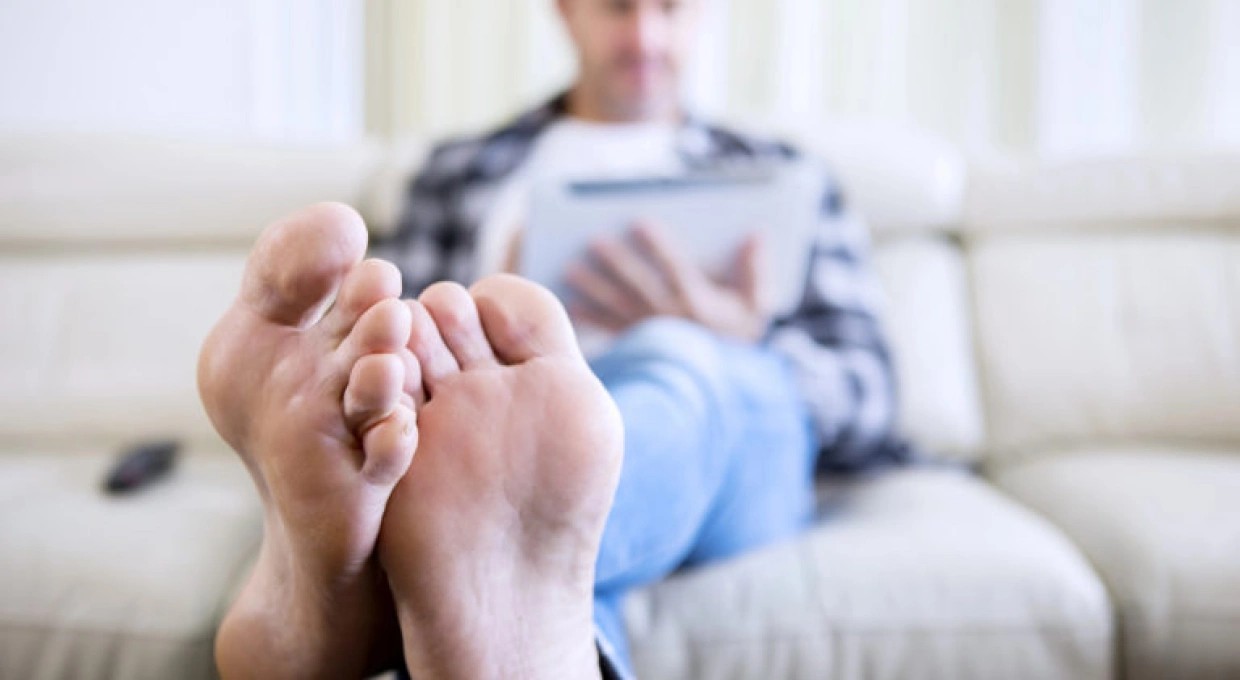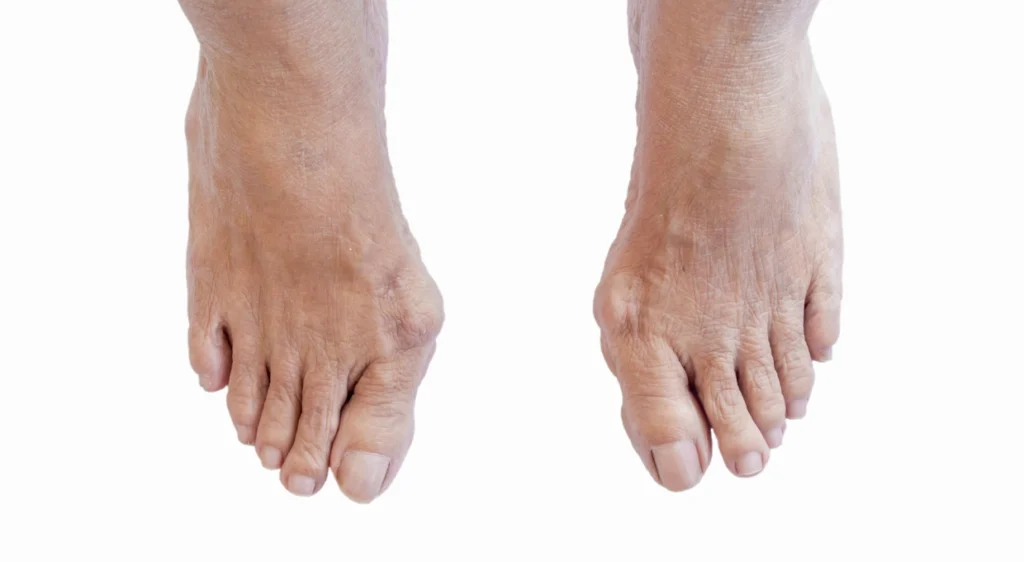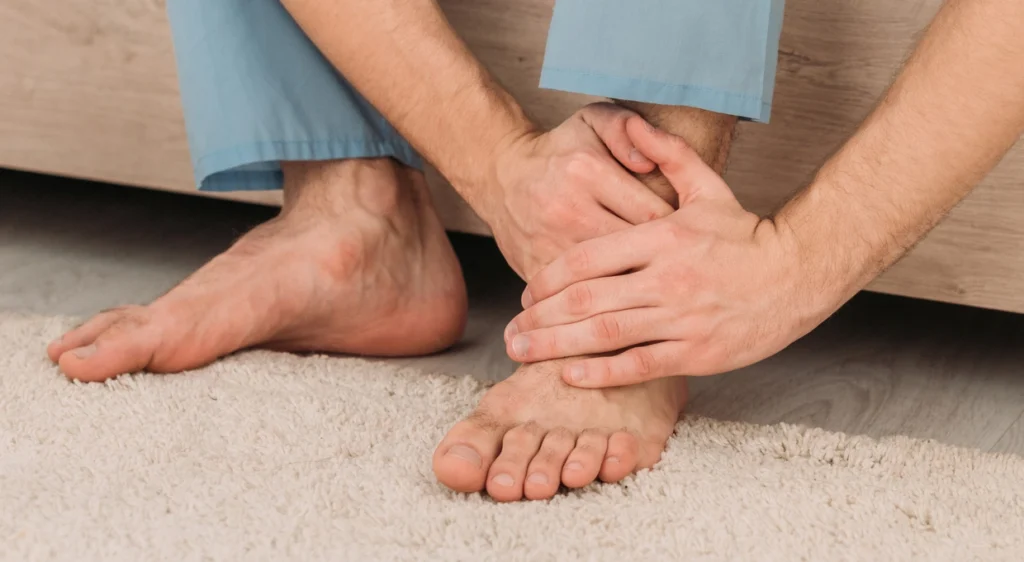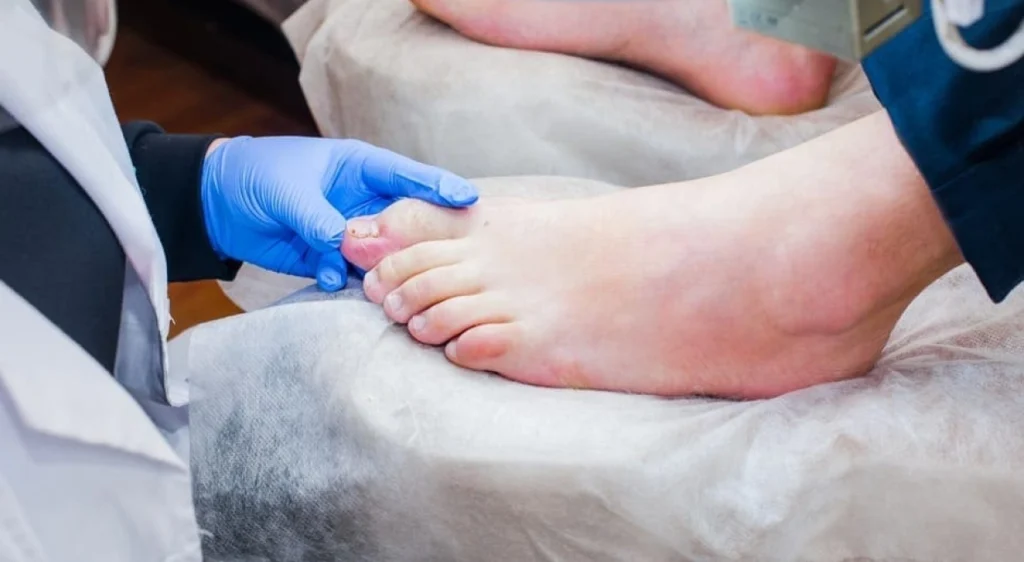The feet are a part of the body that we often overlook in terms of their relationship to overall health, especially heart health. However, the feet can offer important signals about the state of our cardiovascular system. Understanding this connection can help you detect health problems before they become serious.
The connection between the feet and the heart
The heart is responsible for pumping oxygen-rich blood throughout the body, including the feet. When the cardiovascular system is not functioning properly, the feet are one of the first areas to show warning signs. This is because the feet are the farthest away from the heart and therefore depend on an efficient circulatory system to receive sufficient blood. Problems such as peripheral arterial disease (PAD) and chronic venous insufficiency are examples of how poor heart and artery health can manifest in the feet. Both conditions are related to poor circulation and can be signs of underlying cardiovascular disease.
Signs on the feet that indicate heart problems
- Swelling (edema): Fluid accumulation in the feet and ankles, known as edema, is a common symptom of heart failure. When the heart does not pump blood effectively, fluid accumulates in the lower extremities due to gravity.
- Skin color changes: Cold, pale or blue feet may be a sign of poor circulation, indicating that not enough oxygenated blood is reaching the feet. This may be related to heart disease or clogged arteries.
- Non-healing sores or ulcers: Sores that take a long time to heal, especially on the feet, may be an indication of peripheral arterial disease, a condition in which the arteries are narrowed or blocked, reducing blood flow. PAD is a risk factor for heart attacks and strokes.
- Pain when walking (intermittent claudication): If you experience pain in your feet or legs when walking that improves with rest, it could be a symptom of peripheral arterial disease. This condition is due to reduced blood flow to the extremities during physical activity.
- Cold feet: Although having cold feet occasionally is not necessarily a problem, if you experience cold feet on a consistent basis, it could be a sign of poor circulation, which could indicate heart problems.
Peripheral arterial disease (PAD) and its relationship with the heart.

Peripheral arterial disease is one of the most direct conditions that connects the health of the heart to the health of the feet. PAD occurs when the arteries that supply blood to the extremities become narrowed or blocked due to plaque buildup. This not only affects circulation in the legs and feet, but also increases the risk of heart disease. People with PAD have a significantly increased risk of heart attack or stroke. In fact, PAD is often considered an early indicator of cardiovascular disease, making early detection and treatment crucial.
How to take care of your feet and your heart
Maintaining the health of your feet and your heart requires a comprehensive approach that includes a healthy lifestyle, regular medical monitoring and specific attention to any changes in the condition of your feet.
- Regular exercise: Keep circulation active with exercises that strengthen both the heart and leg muscles. Walking, swimming and cycling are excellent choices.
- Balanced diet: A diet low in saturated fats, rich in fruits, vegetables and whole grains, helps to keep arteries clean and prevent the accumulation of plaques that can block blood flow.
- No smoking: Smoking is a major risk factor for both heart disease and peripheral artery disease. Quitting smoking significantly improves cardiovascular health.
- Control weight and blood pressure: Maintaining a healthy weight and controlling blood pressure are crucial to prevent circulation problems that can affect both the feet and the heart.
- Regular foot checks: Perform regular self-examinations to detect changes in the color, temperature or sensitivity of your feet. If you notice any abnormalities, consult a doctor or podiatrist.
Conclusion
Your feet can be a direct reflection of the health of your heart. Paying attention to the signals your feet send you can help you detect cardiovascular problems at an early stage, allowing you to take preventive measures. Maintain a healthy lifestyle, get regular medical checkups and take care of both your feet and your heart to enjoy a long and active life.



